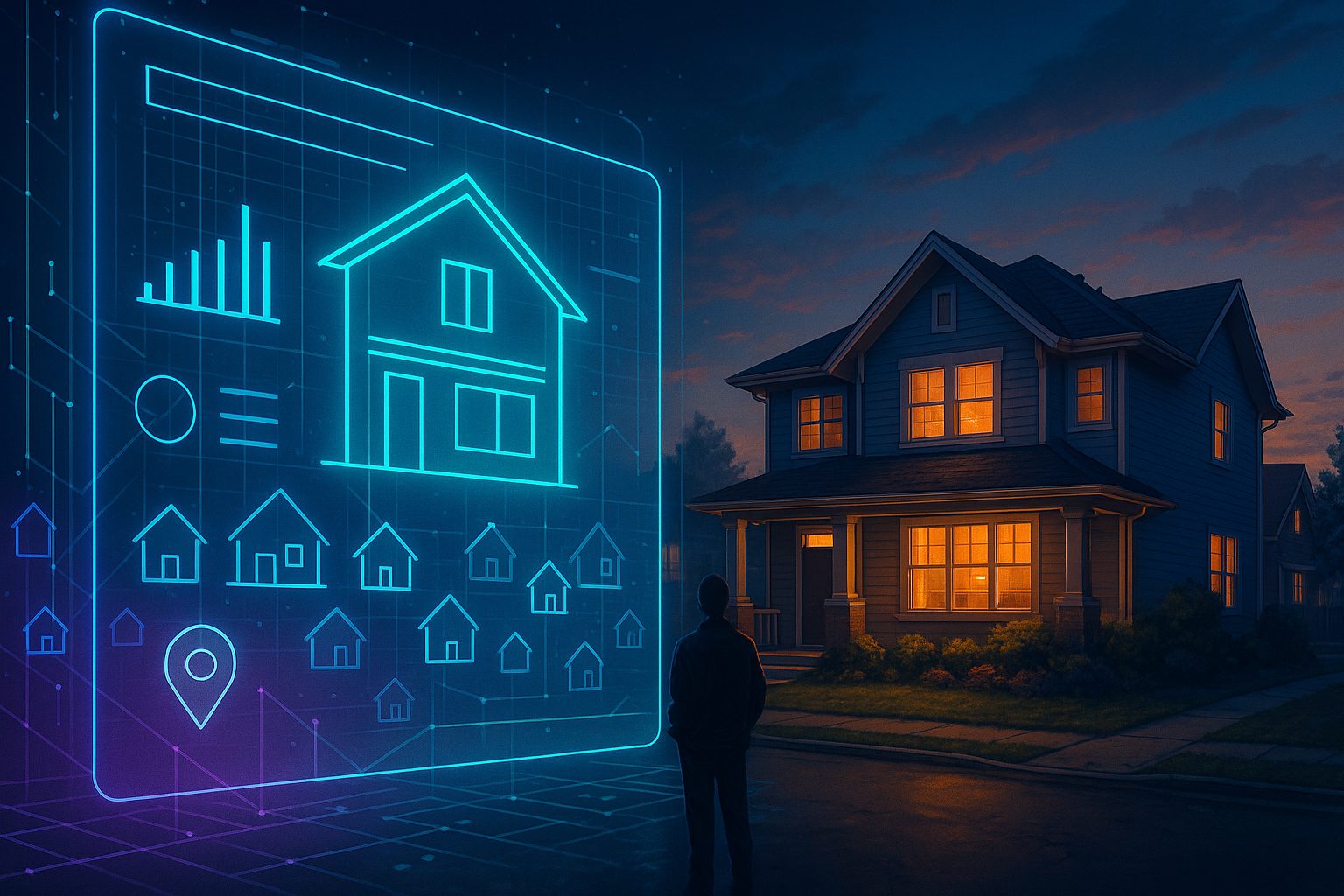The algorithm knows you want three bedrooms, two baths, and a two-car garage. It knows your budget down to the dollar, your preferred school districts, and how many minutes you’re willing to commute. Feed it enough data points and it’ll spit out a list of properties so perfectly matched to your criteria that you’ll wonder if it’s been reading your diary.
But here’s what it doesn’t know: how you’ll feel when you walk into that kitchen on a Tuesday morning, sunlight streaming through the window you didn’t even notice in the listing photos, and realize this is where you want to drink coffee for the next decade of your life.
The Seduction of Perfect Data
We live in an age where our phones know us better than our therapists. Your streaming service can predict what you’ll want to watch tonight with unsettling accuracy. So when you start house hunting, it feels natural to expect the same algorithmic precision.
And in many ways, AI-powered real estate platforms deliver. They process thousands of listings in seconds, filter out the noise, and present you with options that check every box on your wish list. Square footage? Check. Neighbourhood walkability scores? Check. Recent comparable sales? Check and double-check.
The technology is genuinely remarkable. Machine learning models can identify architectural styles in photos, predict property value trends, and even estimate how long a house will stay on the market. But stated preferences are a funny thing—they’re the conscious mind’s attempt to rationalize what the heart wants, like trying to explain why you fell in love by listing your partner’s measurable qualities.
The Geography of Belonging
You might spend months looking for your “forever home” with your criteria locked down: suburban neighborhood, good schools, move-in ready condition. The algorithm keeps serving you properties that meet every requirement. Beautiful houses. Practical houses. Houses that make perfect sense on paper.
You tour dozens of them. Each one feels like wearing a suit that fits but doesn’t belong to you.
Then you walk into a house that shouldn’t work—maybe it needs updating, maybe it’s slightly over budget, maybe it wasn’t even flagged as a serious contender by the AI. But the moment you step through the front door, something shifts. The house seems to exhale around you, making space for your life in ways you can’t articulate.
What mysterious alchemy transforms a collection of rooms into a home? And why can’t the algorithm predict it?
The Unmeasurable Variables
Here’s what AI can’t quantify: the way afternoon light moves across a living room wall. The particular silence of a neighborhood at dawn. How it feels to imagine your children’s voices echoing through those hallways. The inexplicable rightness of a place that defies rational explanation.
These aren’t failures of technology—they’re acknowledgments of something deeper about human nature. We don’t just inhabit spaces; we fall in love with them. And love, as anyone who’s tried online dating can tell you, resists algorithmic prediction.
The algorithm sees data points. You see the theater where your life will unfold.
The Stories Homes Tell
Every home has a narrative, layers of human experience embedded in its walls like tree rings. The AI might recognize architectural details, but it can’t read the deeper story: who lived here before, what kind of energy they left behind, whether this feels like a place where good things happen.
Real estate agents who’ve been in the business for years will tell you about clients who knew within thirty seconds of entering a home. Not because of any feature they could point to, but because of some indefinable rightness. Call it intuition, call it chemistry, call it the home choosing its people as much as the people choosing the home.
The Weight of Future Memories
When you’re house hunting, you’re not just buying a structure—you’re buying the setting for everything that comes next. The kitchen where you’ll burn dinner on anniversary nights. The living room where friends will gather for holidays you haven’t celebrated yet.
AI can predict market trends and calculate mortgage payments, but it can’t foresee the weight of future memories a space will hold. It doesn’t know that you’ll associate that particular shade of morning light with the period when you were happiest, or that the sound of the neighbor’s dog barking will become oddly comforting after the first year.
The Paradox of Perfect Matching
Here’s the thing about letting AI handle your house hunt: perfect matches on paper sometimes translate to perfectly forgettable experiences in reality. When every variable is satisfied, you might end up with something that feels more like a successful math problem than a home.
The most beloved homes often have something slightly imperfect about them—a quirky layout, an unusual architectural detail, a location that’s not quite what you thought you wanted. These imperfections become character, the things that make a house distinctly yours rather than generically anyone’s.
The Human Element
This isn’t an argument against using AI in your house search—the technology is genuinely helpful for narrowing down options and understanding market dynamics. But the final decision lives in a place that algorithms can’t access.
Let the AI handle the heavy lifting of filtering and sorting. Let it crunch the numbers and flag the obvious mismatches. But when it comes time to choose, trust the part of you that responds to things that can’t be quantified.
Pay attention to how you feel in different spaces. Notice what makes you linger in one room and hurry through another. Ask yourself not just whether a house meets your requirements, but whether you can imagine being happy there during ordinary Tuesday afternoons.
The Art of Becoming
Finding the right home is less about matching a list of features and more about recognizing a space where you can become who you’re meant to be next. That process of recognition happens somewhere deeper than conscious analysis, in the place where logic meets longing.
The AI can find you houses that fit your parameters. Only you can find the one that fits your soul.
So use the algorithms as your research assistant, but not your decision maker. Let them show you what’s possible, then trust yourself to know what’s right. Because in the end, the best house isn’t the one that looks perfect on a screen—it’s the one that feels like home when you’re standing in its kitchen, imagining all the life you’ll live there.
The heart has its own algorithm, more complex and more mysterious than anything we’ve built. It runs on data too subtle for machines to process: the quality of silence, the texture of belonging, the particular way light falls across a room where you can imagine being happy.
Trust it. It knows things the computers don’t.

 Facebook
Facebook
 X
X
 Pinterest
Pinterest
 Copy Link
Copy Link

